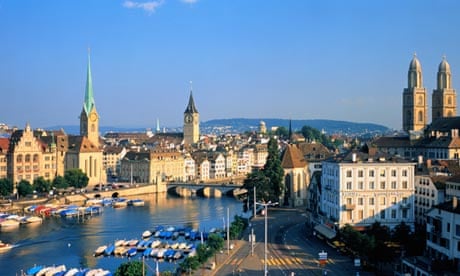A group of Orthodox rabbis warned on Wednesday that the ancient Jewish practice of infant male circumcision could face further restrictions in Europe after some hospitals in Austria and Switzerland suspended the procedure by citing a German court ruling that it could amount to criminal bodily harm.
Last month's verdict by a regional court in Cologne did not ban circumcision, but it prompted angry protests from Jewish and Muslims groups, especially after the German Medical Association advised doctors not to perform unnecessary circumcisions until the legal situation was clarified – something Germany's government has pledged to do soon.
Two weeks ago, a hospital in Zurich also suspended circumcisions, saying it wanted to investigate public concerns about the procedure, which involves cutting off a boy's foreskin. Anti-circumcision campaigners say the act breaches the child's right to bodily integrity, while faith groups insist it is part of their religious freedom.
"We in Switzerland aren't directly affected by the Cologne ruling, but it sparked a debate about how to deal with the medical and ethical issues involved," said Marco Stuecheli, a spokesman for Zurich's Children's Hospital.
On Tuesday, the governor of Vorarlberg province in Austria told state-run hospitals to stop circumcisions except for health reasons until the legal situation was clarified. He said the German decision, which arose from the case of a child whose circumcision led to medical complications, was a "precedence-setting judgment."
"Our fears that the court ruling in Cologne could have a knock-on effect across Europe are now being realised," said Pinchas Goldschmidt, the president of the Conference of European Rabbis.
He said Jewish leaders across the continent would seek out politicians and government officials to impress on them how central the practice was to their faith and to forestall further restrictions elsewhere.
While Muslims commonly circumcise their sons at a young age, in Judaism the procedure must take place eight days after birth. According to religious law, an uncircumcised male is not considered fully part of the Jewish community, Goldschmidt said.
"In order to change that, we would have to convene a supreme Jewish religious court, which has not convened for the last 2,000 years," he said.
The German government is expected to propose a bill this autumn which would ensure that circumcision remains legal in the country.
The Children's Hospital in Zurich said it hoped to reach a decision next month about whether to resume circumcisions. So far, the suspension has delayed only two planned operations, because many Jewish parents prefer to have their sons circumcised privately, Stuecheli said.
